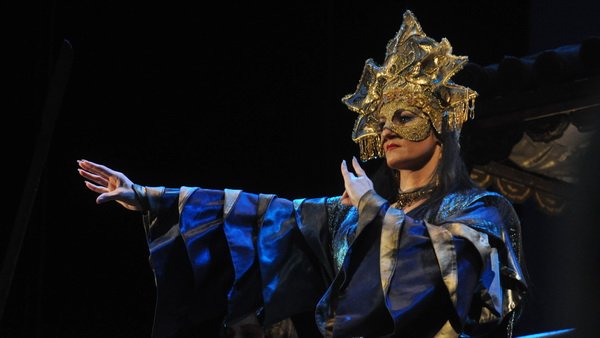Turandot
7 June 2019, 8 p.m.
In Brief
Opera in three acts, two parts, in Italian, with Hungarian surtitles
Details
- Location
- Margaret Island Theatre
- Date
- June 7, 2019
- Start time
- 8 p.m.
- End time
- 11 p.m.
Synopsis
The mandarins announce the emperor's decree in the streets of Peking: he who solves Princess Turandot's riddles will win her hand. The crowd is ecstatically waiting for the execution of the Persian prince who has failed the latest trial - and then, feeling sympathy, beg for his life. But Turandot refuses to show mercy.
In spite of this heartless cruelty a new suitor appears: the Tartar prince in exile, Calàf. He will not listen to anyone, he always goes his own way, and now challenges his fate: he enters the palace.
The responsibilities of office and the chore of balancing various interests and requirements have already exhausted the three ministers, who are dreaming of a peaceful civilian way of life.
Turandot presents three riddles to the brave candidate. Calàf replies to the first two correctly. Then Turandot presents the third riddle:
'Ice which gives you fire
and which your fire
freezes still more!
Lily-white and dark,
if it allows you your freedom
it makes you a slave;
if it accepts you as a slave
it makes you a King!'
Calàf's reply is correct: 'Turandot'.
But the way to find the other one can only be right if it departs from the beaten track. The smallest of deceits, self-delusion or dishonesty leads us on a wild goose chase. Thus, Calàf is dissatisfied with his rapid success, and now it is his turn to ask a question from Turandot: 'Tell me my name - Who am I?'
All Peking is trying to discover the stranger's name, when the slave girl Liù appears, who refuses to reveal her master's name in spite of torture. Her determination is fuelled by love, and this hopeless emotion drives her to suicide. Liù's death creates a situation where there is no place for pretence - the mask should fall, and the actor must reveal himself. Before resurrection one must be destroyed so that we can be born again like a phoenix from the ashes. It could even be called love.
